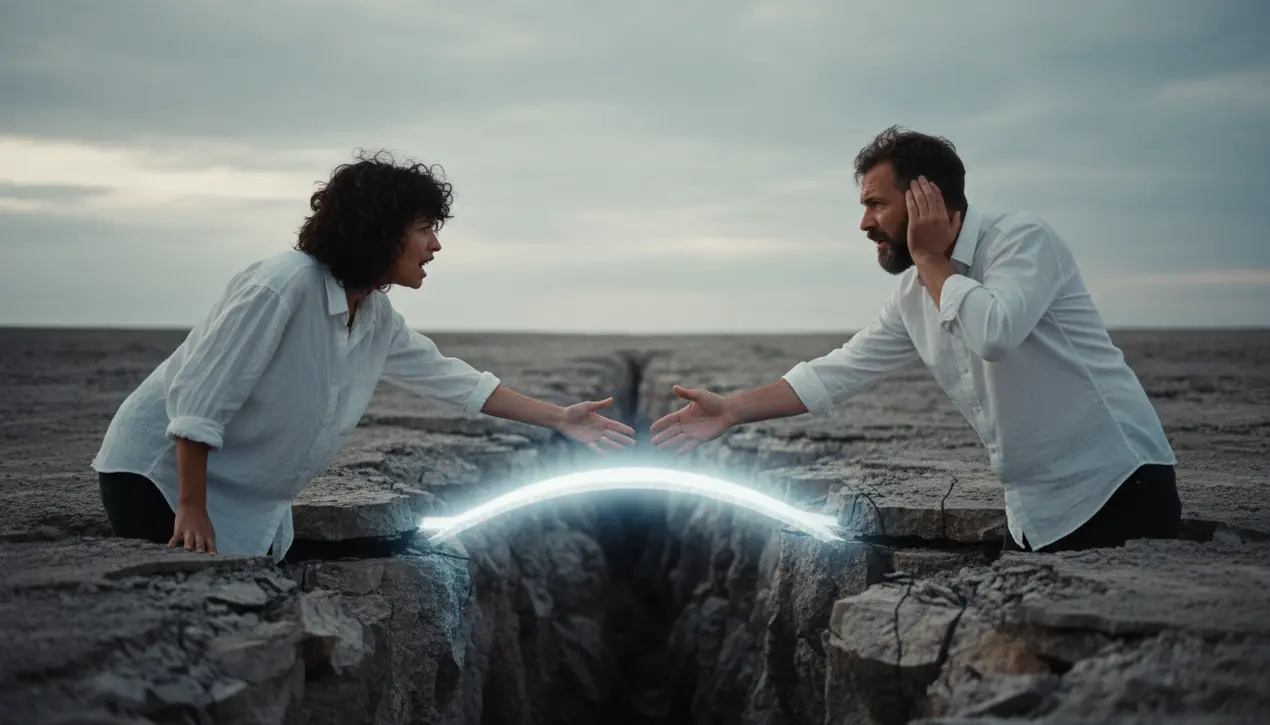
OthereducationOnline Learning
The Art of Mending: How Empathetic Listening Can Heal Communication Breakdowns
LA
Laura Bennett
2 hours ago7 min read2 comments
That moment is chillingly familiar: you and your partner are in the same room, yet you're experiencing profoundly different realities. The bridge of understanding you worked so hard to build suddenly feels like it's collapsing beneath you.What happens when the very connection that once felt electric now generates only static and misunderstanding? In 1951, against the ominous backdrop of the Cold War, pioneering psychologist Carl R. Rogers delivered a radical message at the Centennial Conference on Communications.His insight, forged through years of client-centered therapy, remains profoundly relevant: the key to resolving conflict—from global standoffs to domestic disputes—isn't about winning an argument, but about achieving genuine, empathetic understanding. Rogers identified our instinct to judge, evaluate, and approve or disapprove from our own perspective as the primary obstacle to true communication.He advocated for 'active listening'—a disciplined practice of striving to see the world from another's viewpoint, to sense how they feel, and to understand their internal frame of reference. This isn't passive hearing; it's a courageous, active endeavor to step into someone else's subjective world without immediately asserting your own.Through my work with couples, I've observed a universal pattern: communication doesn't typically shatter with a loud crash, but with a series of quiet failures—a missed whisper, an uninterpreted sigh, a need expressed in one emotional language but answered with a solution from another. One individual described her marriage as two radio stations on adjacent frequencies, creating constant interference until they learned to properly tune into each other's channel.Rogers recognized that this requires a fundamental psychological shift. It asks us to set aside our self-importance and our deep-seated need to be right, offering instead what he called 'unconditional positive regard'—a complete, non-judgmental acceptance of the other person as they are in that moment.This work is profoundly challenging. Our egos are fragile; our personal narratives are designed for self-protection.To listen authentically is to make ourselves vulnerable to being transformed by what we hear. Yet, this vulnerability is precisely what can de-escalate tension, whether on the world stage or across the kitchen table.When we feel genuinely heard, our defensive barriers begin to lower. The energy we once expended defending our position becomes available for collaboration and creative problem-solving.The dialogue transforms from a battle over whose reality is correct into a shared exploration of a complex, mutual experience. It's the crucial difference between declaring, 'You are wrong for feeling that way,' and asking, 'Help me understand what it's like to feel that way. ' In our current era of digital echo chambers and polarized debate, Rogers' human-centered wisdom is more than a therapeutic technique; it is an essential social technology for repairing the fabric of our relationships and communities, one honest, empathetic exchange at a time.
#communication
#psychology
#Carl Rogers
#relationships
#conflict resolution
#editorial picks news
Stay Informed. Act Smarter.
Get weekly highlights, major headlines, and expert insights — then put your knowledge to work in our live prediction markets.
Related News
Comments
Loading comments...
© 2025 Outpoll Service LTD. All rights reserved.